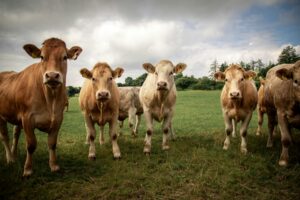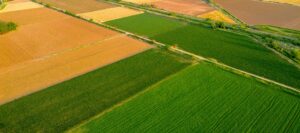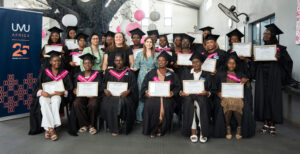In this first week of another lockdown, we thought we would take a look back at where we’ve come from with the coronavirus, and at what lies ahead. In many ways the subject is still a work-in-progress, but one doesn’t need hindsight to recognise that it is already a watershed and has affected the global economy, political landscape and all our social interaction.
The First Two Waves and Lockdowns
Here in South Africa, agriculture shone brightly during the first two lockdowns, having been declared a critical service. Exceptions were some of our industrial crops and value add activities. Cotton dipped because the downstream activities were curtailed. Alcohol was banned, with devastating results for the wine and wine grapes value chain — and employment figures in the Western Cape (not the best time for national government to hike the minimum wage 16%!) The barley value chain also suffered under this ban. As one agriculturalist wryly said, the barley plants cannot be told to pause their growing until the lockdown has been lifted! And then we had the curious case of tobacco sales being prohibited. This was covered in a previous blog.
Hunting, livestock auctions and farm stays/tourist activities were not allowed. (Farmer Unions are currently trying to get clarity on where they stand on these issues this time around).
The lockdown meant community patrols were not active, and although there were fewer farm attacks (at least initially), farm murders continued.
We have lost at least several prominent agricultural personalities: Dr. Meshack Radebe, Prof Mohammad Karaan, Manie Booysen and Bully Botma among them. We had contact with Booysen and Botma in the 2000s when we launched our publication, then called the National Agricultural Directory with its Afrikaans version, the Nasionale Landbougids.
Booysen was the CEO of SAMIC, the South African Meat Industry Council. At that stage, SAMIC put out a weekly electronic newsletter (much like the one done currently by Agbiz). We met him at the Nampo Harvest Day festival after publishing our first edition, and he congratulated us on the book, describing it as ordentlik (decent or proper).
When I met Bully Botma he was standing next to Steve Shone at the Agri SA congress in Bloemfontein. They stood, two tall men from the Grain SA executive, as expressionless and as inscrutable as statues. Their reserve upon meeting me as a newcomer, and a newcomer from the press nogal, was understandable. Fortunately, by the time of our third edition (2009), Botma walked over during the annual AMT conference to exchange pleasantries and to collect his copy.
We could do an ironical look at ivermectin, previously used to treat livestock infested with parasitic worms in South Africa and now sold-out in co-ops because it might be an answer to the coronavirus. Because ivermectin has previously also been used for as a topical ointment in humans we’ll leave it out here.
Third Wave and Current Lockdown
So where are we? On July 1, 2021 South Africa has had a total of 1 973 972 COVID-19 cases. Gauteng remains the epicentre, accounting for the majority of new cases (57%), followed by the Western Cape (11%) and North West (7%) provinces. The death toll stands at 60 647.
Lower production of field crops and animal products means agriculture’s contribution to GDP has been lower so far this year, attributed to seasonality factors and continuing drought in some areas of the country, but a rebound is expected in the second quarter (Agri SA, 2021).
From Agri SA, find “High Level Summary of Adjusted Alert Level 4, 28 June 2021” and “Covid 19 vaccines: Is the agricultural sector important?” (which includes a look at vaccines in the workplace: can you force your employees to “take the jab”?)



